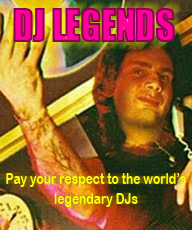So, I'm doing it like this, are you doing it like this or are you doing it like that?
Home :: General Discussion :: So, I'm doing it like this, are you doing it like this or are you doing it like that?Reply
So, I'm doing it like this, are you doing it like this or are you doing it like that? Posted on: 08.07.2012 by Len Lukawski If you have seen the brilliant Ill Gates "Ill Methodology" videos then you'll know about "Daytime Sessions" and "Nighttime Sessions." Daytime sessions are large chunks of time that are dedicated to completing or making serious headway with a production. Nighttime sessions are those odd hours here and there where you don't have the time to drill deep into your project but can do work to keep moving forward. That means sorting out your library, making sounds, patterns, beats etc, i.e making building blocks and doing prep work to expedite those daytime sessions. These days, the concept of the daytime session is largely a fantasy for me. I wont bore you with the details but work/job/family makes finding half a day or a day very challenging. For me I'm really dealing with twilight, dusk and evening sessions; smaller segments of time that are regularly interrupted (other than the Evening Sessions). Don't get hung up on the fact that my sessions names have an evening theme when they are in the middle of the day. Other people might call theirs Tom, Hilda and The f7ckest Uppest. Evening sessions - Anywhere between 11pm and 3am, most evening s. Duration: 20 minutes to 2 hours. iMaschine - Use this to sketch out basic loops, patterns and capture what might pass as a real idea once in a while. Soundcloud - Push out rough patterns to Soundcloud so I can get at them easily and if someone comments/likes/hates then all the better. - This happens most frequently as it's after everyone has gone to bed. Dusk Sessions - Mid Morning or Early afternoon, once or twice a week. Duration 1-2 hours Maschine - Pull in loops/sketches from iMaschine. If I believe it's something that will make for a standalone track I'll work towards that goal if not, choppy choppy, savey savey time. Good chance I will do both. - I am just starting to do this session as I'm still learning Maschine. Twilight Sessions - Whenever, a couple of times a month. Duration: 1-4 hours Traktor + F1, Pull in tunes, loops, hit buttons, pull shapes. - This is the planned approach. I haven't done it yet as I'm still starting/working through the other sessions. Well, I do pull shapes.... This is not meant as a guide. model or even suggestion. I would love to do the straight daytime/evening model as Dylan recommends but this is how it is for me, at least for the time being. So how do you do it? | |
| Len Lukawski 08.07.2012 | If you have seen the brilliant Ill Gates "Ill Methodology" videos then you'll know about "Daytime Sessions" and "Nighttime Sessions." Daytime sessions are large chunks of time that are dedicated to completing or making serious headway with a production. Nighttime sessions are those odd hours here and there where you don't have the time to drill deep into your project but can do work to keep moving forward. That means sorting out your library, making sounds, patterns, beats etc, i.e making building blocks and doing prep work to expedite those daytime sessions. These days, the concept of the daytime session is largely a fantasy for me. I wont bore you with the details but work/job/family makes finding half a day or a day very challenging. For me I'm really dealing with twilight, dusk and evening sessions; smaller segments of time that are regularly interrupted (other than the Evening Sessions). Don't get hung up on the fact that my sessions names have an evening theme when they are in the middle of the day. Other people might call theirs Tom, Hilda and The f7ckest Uppest. Evening sessions - Anywhere between 11pm and 3am, most evening s. Duration: 20 minutes to 2 hours. iMaschine - Use this to sketch out basic loops, patterns and capture what might pass as a real idea once in a while. Soundcloud - Push out rough patterns to Soundcloud so I can get at them easily and if someone comments/likes/hates then all the better. - This happens most frequently as it's after everyone has gone to bed. Dusk Sessions - Mid Morning or Early afternoon, once or twice a week. Duration 1-2 hours Maschine - Pull in loops/sketches from iMaschine. If I believe it's something that will make for a standalone track I'll work towards that goal if not, choppy choppy, savey savey time. Good chance I will do both. - I am just starting to do this session as I'm still learning Maschine. Twilight Sessions - Whenever, a couple of times a month. Duration: 1-4 hours Traktor + F1, Pull in tunes, loops, hit buttons, pull shapes. - This is the planned approach. I haven't done it yet as I'm still starting/working through the other sessions. Well, I do pull shapes.... This is not meant as a guide. model or even suggestion. I would love to do the straight daytime/evening model as Dylan recommends but this is how it is for me, at least for the time being. So how do you do it? |
| Brunilda Kora 09.07.2012 | I'm seriously considering buying teh complete iLL Methodology. There was talk of an iLL Methodology for DJ's a while back, too... |
| Freida Leash 08.07.2012 | I used to work as a freelance graphic designer and I would block out chunks of the day between the kind of work. First things in the day was return calls, email, take care of meetings and any other logistic stuff that was necessary between clients and vendors. After lunch I got to the nitty gritty grunt work of lay outs and concept, then as soon as possible and I am set up to start running the creative side, choose the most formed idea and work my way to the least formed idea as the day turned into evening
and often into the morning. All the while juggling things about to fit deadlines and answer the phone to take new work. I found I preferred the 11-4am time of day when no one was calling and my headphones on to do the truly creative stuff, although I always started well before so that that deadlines are met. Nothing was ever set in stone, I would change the routine to fit schedules as necessary. I imagine if I was professionally producing and performing that my time at home would be spent much the same way. Clerical tasks early, tedious stuff while I'm most awake, "fun" stuff when I'm in a mood for it and not being bothered. Most people don't have the luxury of having the time to consider a day of working on what they love. |
| Cole Maroto 08.07.2012 | i like a lot of what ill.gates has to say but this type of workflow isn't realistic for the vast majority of people looking to get into producing or djing. i work a full time job so there's no such thing as a evening
time and daytime approach for me. i have one time and that's after i get off work at 10pm. i then have to divide that time up between prepping, djing, and learning maschine/producing. i usually do which ever one sounds the best at the moment. sometimes i am feeling creative so i will produce, while other times i don't really want to believe or create so i will just prep. i have spoken to a couple of people and they said that your creative brain is apparently more in control directly after you wake up so it would be interesting to try that approach out and see if i can wake up a couple of hours early to produce. or maybe try it on my weekends. this has worked for me in the past when drawing. when i worked at 7am (which was tough since i am a evening person) i would go into work and just randomly draw stuff in ms paint, of all things, and i made some really great stuff over the course of several weeks. it seemed like ideas just happening through me and i had no concept of what was going appear on the blank pages. it was cool to see ideas and shapes starting to take place then i would just fine tune them when i saw what they were. |
| Ervin Calvery 08.07.2012 | I like really a lot of what Ill Gates is saying there, and I love that he's interested in education. I don't believe a lot in 'flow.' I do believe that there are moments of inspiration, like 'the muses are visiting,' or something is knocking around in one's head, but I don't love the idea that music must be made the way that Mozart dictates to Salieri at the end of Amadeus. Around 10:00 he starts to talk about 'the twenty-hour guillotine,' which I find to be a difficult pill to swallow, as I believe that it takes as long as it takes, and I believe that some people require more discipline and isolation to be focused. I've recycled (my own) things for homework before (yesterday's violin concerto is today's oboe sonata, etc), but I'm not likely to 'gut [something] for parts,' in a really systematic way if I don't finish it. I do keep idea libraries, libraries of patches and samples, etc, but they don't come from unrealized projects. I do it another way. I'll start developing something, pitch it to someone I want to collaborate with, and revisit it when they find time to do their part of the work. I've recycled (my own) things for homework before (yesterday's violin concerto is today's oboe sonata, etc), but I'm not likely to 'gut [something] for parts,' in a really systematic way if I don't finish it. Also, I like to score a lot of things - a lot of the time I'll make a lead sheet with some harmonic structure, and I often score everything in Sibelius before I send the MIDI to Ableton, where I apply the sound design type of composition and production, possibly at (another) later date. |
<< Back to General DiscussionReply



